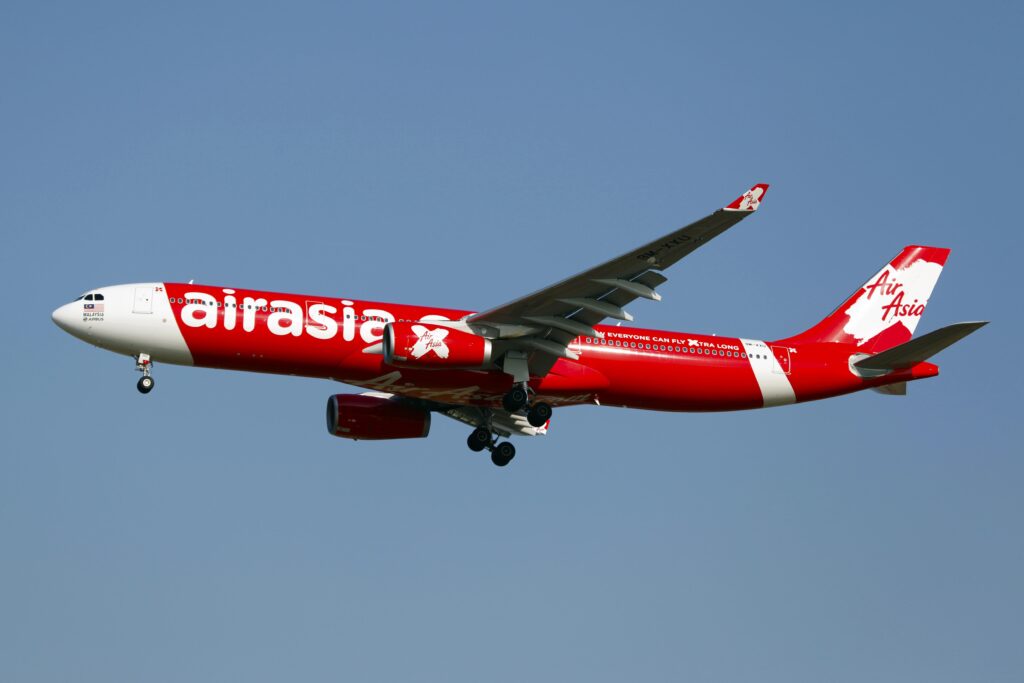AirAsia Expands International Reach with New Kota Kinabalu–Fukuoka Route via Taipei
AirAsia has unveiled a fresh international connection linking Kota Kinabalu, Malaysia, to Fukuoka, Japan, with a convenient layover in Taipei, Taiwan. This strategic route expansion is designed to enhance travel options for passengers across these dynamic cities while stimulating tourism and commercial exchanges. As global air travel rebounds from recent disruptions, AirAsia’s initiative underscores its dedication to adapting services that meet the evolving demands of travelers in Southeast Asia and East Asia.
AirAsia Launches Kota Kinabalu–Fukuoka Service via Taipei: A New Gateway for Travelers
In an effort to broaden its international network and improve regional accessibility, AirAsia now offers flights connecting Kota Kinabalu with Fukuoka through a stopover in Taipei. This new itinerary not only facilitates smoother transit between Malaysia and Japan but also opens up additional travel opportunities for Taiwanese passengers interested in exploring Sabah or southern Japan. The route provides enhanced scheduling flexibility with multiple weekly departures tailored to accommodate both leisure tourists and business travelers seeking efficient connections.
Key features of this service include:
- Flight Schedule: Multiple weekly flights ensuring convenience and choice.
- Seamless Transfers: Streamlined connections at Taipei Taoyuan International Airport enabling easy onward journeys.
- Affordable Pricing: Competitive fares aimed at making international travel more accessible.
| Segment | Frequency | Flight Time |
|---|---|---|
| Kota Kinabalu – Taipei | 3 times per week | Approx. 4 hours |
| Taipei – Fukuoka | Daily service available | Around 2.5 hours |
This expanded connectivity is expected to foster stronger cultural ties as well as economic collaboration among the three cities by facilitating easier movement of people and goods.
Boosting Tourism and Commercial Exchange in Kota Kinabalu Through Enhanced Connectivity
The inauguration of this new flight path holds promising implications for both tourism growth and trade development within Sabah’s capital region. Tourists from Japan can now conveniently access the natural beauty of Sabah—ranging from pristine beaches to lush rainforests—while Malaysian visitors gain improved entry points into Fukuoka’s vibrant urban culture known for its festivals, historic temples, and culinary delights such as Hakata ramen.
Economic benefits are anticipated as increased visitor numbers translate into higher spending on accommodations, dining experiences, local crafts, and entertainment venues throughout Kota Kinabalu. According to recent data from Malaysia’s Ministry of Tourism (2023), inbound arrivals have surged by over 15% year-on-year since early 2024—a trend likely accelerated by improved air links like this one.
On the commercial front:
- Cargo Opportunities: The route enhances logistics capabilities allowing exporters—especially those dealing in tropical fruits like durian or handicrafts—to reach Japanese markets more efficiently.
- Bilateral Business Growth: Easier access encourages joint ventures between Malaysian SMEs (small-medium enterprises) specializing in technology or agriculture with Japanese firms seeking regional partners.
- < strong >Marketing Synergies: strong > Collaborative promotional campaigns could attract investors while boosting business traveler traffic along this corridor. li >
< /ul >Collectively these factors position AirAsia’s new service as a catalyst driving sustainable economic vitality across tourism sectors alongside trade facilitation efforts.
Strategies for Capitalizing on AirAsia’s Expanded Flight Network in Sabah
Local stakeholders stand poised to leverage this enhanced connectivity through targeted initiatives designed specifically around traveler preferences originating from Japan or Taiwan.< strong >Tourism agencies strong > might develop curated itineraries emphasizing eco-adventures such as guided rainforest treks within Danum Valley Conservation Area or immersive cultural workshops featuring indigenous Kadazan-Dusun traditions — appealing directly to niche interests prevalent among Japanese tourists.< /p >
< strong >Hospitality providers strong > should consider partnerships offering exclusive packages aligned with flight schedules including discounted stays during off-peak periods combined with authentic culinary experiences showcasing Sabahan flavors.< /p >
< strong >Transport operators strong > can synchronize shuttle services timed precisely around arrival/departure windows enhancing overall passenger convenience.< /p >
The state government alongside tourism boards could amplify outreach efforts using digital marketing campaigns targeting social media platforms popular among Asian travelers such as LINE (Japan/Taiwan) or WeChat (Taiwan), collaborating closely with influencers who specialize in adventure travel content.< /p >
Together these approaches will nurture an integrated ecosystem that maximizes visitor satisfaction while promoting long-term growth within Sabah’s tourism economy fueled by AirAsia’s expanded routes.< /p >
Conclusion: AirAsia Drives Regional Growth Through Strategic Route Expansion
By inaugurating the Kota Kinabalu–Fukuoka connection via Taipei, AirAsia reinforces its role as a pivotal player enhancing Southeast Asia-East Asia air linkages. This development not only diversifies options available for travellers but also stimulates economic activity spanning hospitality sectors through trade collaborations between Malaysia and Japan.
As airlines worldwide continue adjusting post-pandemic strategies toward resilience & innovation—with IATA reporting global passenger numbers reaching nearly 80% of pre-COVID levels by mid-2024—the introduction of routes like this exemplifies proactive adaptation meeting modern traveler expectations.
Passengers can anticipate greater ease when planning trips involving these destinations alongside competitive pricing structures designed to democratize international flying further than ever before.
Stay updated on future expansions at the official [AirAsia Newsroom](https://newsroom.airasia.com).
